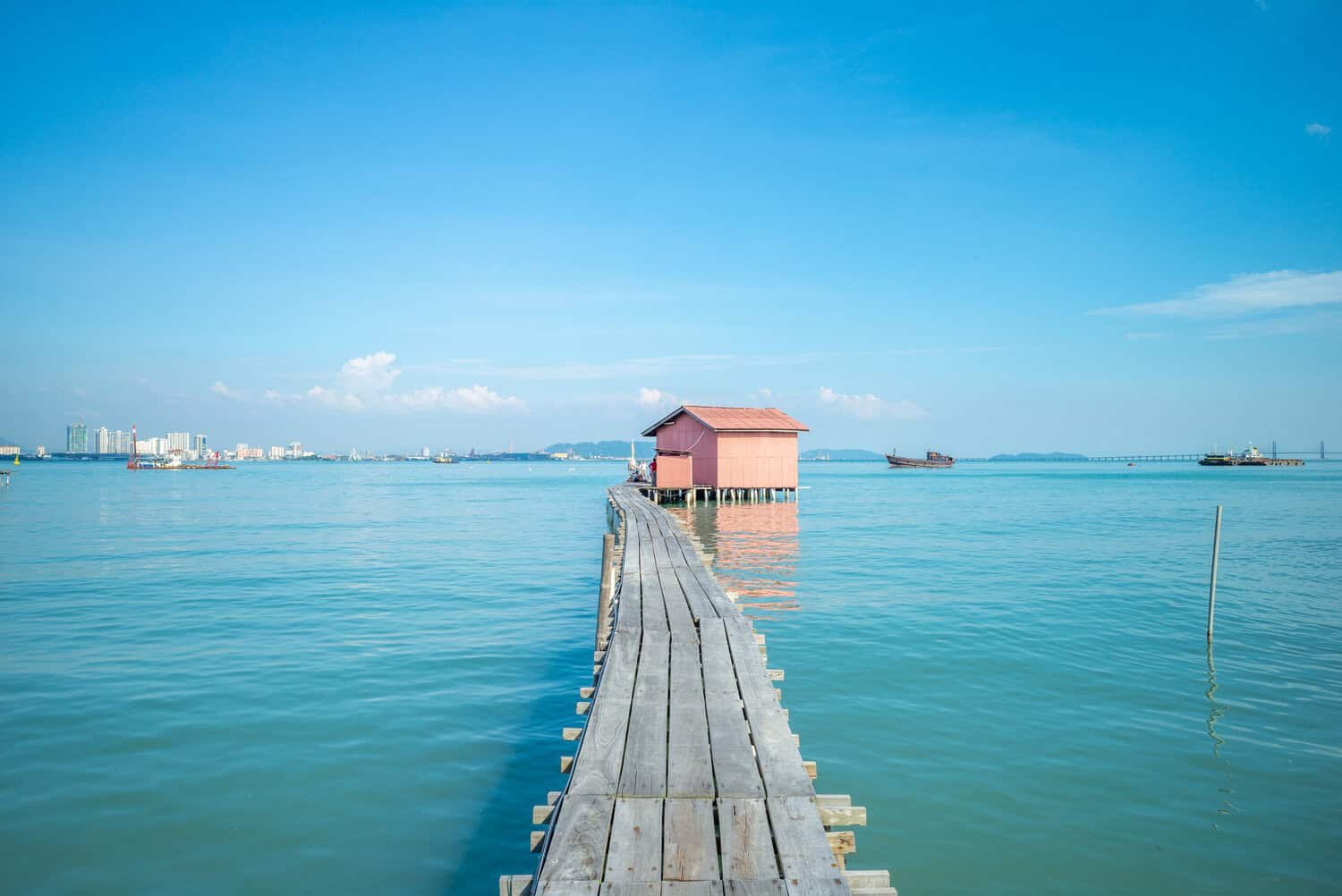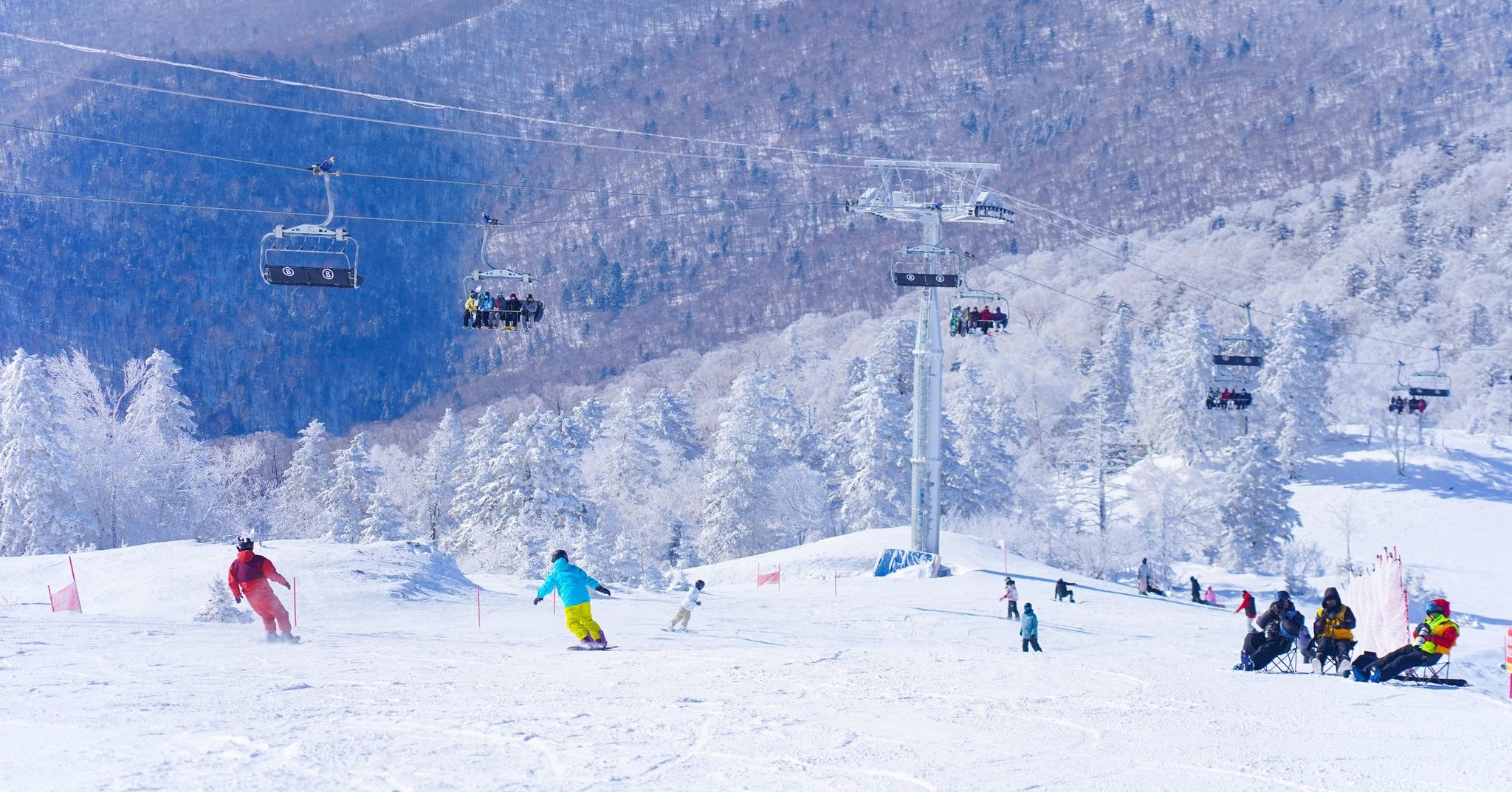Sixteen kilometers southwest of the city of Xinyu, in Southeast China’s Jiangxi province, lies a stunningly scenic expanse with a fantastical name: Fairy Lake Scenic Area.
The nationally recognized scenic spot gets its name from an old legend of a celestial fairy and a local, mortal man engaging in acts I do not dare write here (psst!: they made babies).
In short, the story goes something like this: Seven fairies in feathered clothing descended from heaven to enjoy the serene lake and landscape south of Xinyu. Upon landing, they transformed into beautiful women and shed their feathered outfits, catching the attention of a young man.

Statues of the mythical fairies of Jiangxi’s Fairy Lake
Smitten, the man crept up and quietly hid one of the feathered costumes before enthusiastically approaching the fairies. The fairies were spooked and quickly donned their feathered suits and took to the skies — all but one, the one who could not find her clothes. Realizing she was hopeless to escape, she noticed how attractive the young man was.
Of course, they fell in love and lived happily ever after — or so the story goes.
Hungover and Hunting for Fairies
When I rock up to Fairy Lake on a sweltering hot June day, my head is cloudy from one too many mini-bottles of jingjiu (a Chinese liquor I compare loosely to Jägermeister — it’s herbal — that doubles as traditional Chinese medicine) the night prior. Still, the area’s folklore is very much on my mind. I don’t believe in fairies, or ghosts, or scary little green men, but I do love a good story, and urban myths and local legends have always fascinated me.
As the story of the seven fairies is recounted to me at the scenic area’s entrance, one question is at the forefront of my mind: Have fairies ever returned to the scenic area?

The entrance to Fairy Lake Scenic Area
A friend scoffs at this query, telling me, “It’s just a story; no one has ever seen fairies here.”
He’s probably right. But it is worth remembering that bizarre sightings of seemingly non-existent things happen globally on a daily basis. Fairy sightings have been reported in Ireland, where the ‘wee folk’ are intrinsic to local folklore. In late 2013, protestors organized to oppose the construction of a new road in Iceland that could disturb local fairies, also known as the ‘hidden people.’
In my home province of British Columbia, Canada, sightings of the elusive sasquatch — also known as bigfoot — are as commonplace as the cedar trees that dot the landscape. Heck, a possible sasquatch relative known as the yeren has been sighted on countless occasions in Central China.
Is it too outrageous to assume that fairy sightings may have occurred at Xinyu’s fairy lake?
Fairy Lake’s Unhappy Ending
My visit to the scenic area is led by a local guide, Lanping — a young woman who lives nearby. We pass a large fountain adorned with carved replicas of the seven fairies in their enchanting human forms on our walk from the park gate.
As we stroll through a small tourist village on our way to the lakeside, the legend of the heavenly fairies takes an unexpected twist. I am told that the romance between the trapped fairy and the mortal man of Xinyu has an unhappy ending. After having two children with the man, the fairy manages to retrieve her feathered costume and return to the heavens — bringing her offspring with her and leaving their father utterly alone.

A boat cruising on Fairy Lake, also presumably looking for mythical beings
My guide and I board a small boat upon reaching the water’s edge and set out onto the glassy lake surface to visit several popular tourist spots.
Our first stop is Shengji Temple, located on one of the lake’s hundreds of small islands. As we wander the lakeside footpath from the boat dock to the temple, my eyes are peeled for anything out of the ordinary — anything fairy-like.
Nothing otherworldly jumps out at me on the hike, but my guide does point out where her husband had once sighted a giant and aggressive-looking centipede (a noteworthy event, for sure).
After stopping off at the temple, we reboard the speed boat and set out for another nearby island to undertake a 700-step climb up a steep hill. The journey to the dock at the base of the towering island is stunning. We glide past quaint lakeside homesteads, fishing boats and green, densely forested islands; fishermen wave as we pass, and I can’t help but feel an ethereal peace.

Shengji Temple
Enthralled by the scenery and peaceful serenity of it all, I gaze out at the brilliant-green foliage and hypnotic ripples of the boat’s wake, scanning for signs of feathered women.
When we disembark at the base of the towering island, I’m blissfully unprepared for the climb ahead (and, frankly, too hungover for it). Seven hundred steps might not sound like much, but when they are near vertical and the mercury is approaching 35 degrees Celsius (with a healthy dose of humidity), it’s a trek.
A World Without Magic?
When Lanping and I reach the summit, we are more than a little tired. But the view is worth it.
Below us, the expansive lake springs forth, dotted with a seemingly endless number of islands — like freckles on a sun-kissed face. We gaze out, mostly in silence, taking in the otherworldly beauty of the scene below us.
The sun begins to dip below the horizon, and we agree it is time to head back to the pier. On our walk down the backside of the mountain island, I gaze into the shrubbery, wondering if I’ll catch a glimpse of something unexpected while also curious if the heat and alcohol-induced damage would cause me to vomit on said shrubbery. Life is magical, isn’t it?

Not a single fairy in sight!
We board the boat and depart for the scenic area’s main base — without a single fairy sighting. No beautiful shoreside sirens, no winged wonders, no feathered friends. Nothing. Not one.
As the wake of the boat spreads out across the lake, I stare at it hypnotically. Is there no mystery left in the world? Could the tale of Fairy Lake’s seven visitors be a creative story from some imaginative person long before I was born? Perhaps, or maybe I just came on the wrong day.
But then it dons on me: The real magic of Fairy Lake isn’t in its dusty folklore. It’s in the lush green vegetation, on the countless islands, and in the fearless carp leaping from the water’s surface. Fairy Lake doesn’t need fairies to be enchanting; it casts a spell all on its own.
Images via VCG. Cover image compiled by Sabina Islas



















